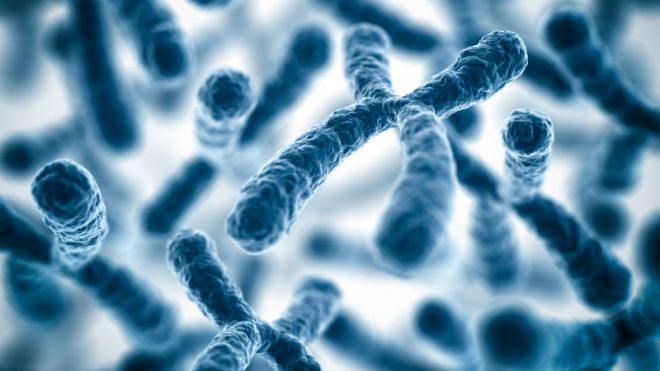
When a child enters puberty earlier than expected, doctors are often at a loss to explain why. But now, researchers have discovered a genetic mutation that they say causes some cases of early puberty. In the study, the researchers in Brazil screened the genomes of 32 people with early puberty from 15 families. (Some cases of early puberty run in families.) Mutations in a gene called MKRN3 were found in 15 people from five of the families. In all of these cases, the mutated MKRN3 gene was inherited from the father, the researchers said. Early puberty, also called precocious puberty, is puberty that occurs before age 8 in girls, or age 9 in boys. Some cases are caused by brain tumors or thyroid problems, but in many cases, a cause is not identified. The average age of puberty onset for those with mutations in the MKRN3 gene was about age 6 for girls, and age 8 for boys. It's not clear exactly how MKRN3 plays a role in puberty, but it may be involved in releasing the “brake” that normally prevents puberty from starting, Dr. Ieuan Hughes, of Cambridge University in the United Kingdom, wrote in an editorial accompanying the study. Puberty begins when the brain starts producing higher levels of a hormone called gonadotropin-releasing hormone. Mutations in the MKRN3 gene may trigger an increase in levels of this hormone at an earlier age, the researchers said. To further investigate the role of MKRN3 in puberty, the researchers studied the brains of mice. They found that levels of MKRN3 gene expression were highest when the mice were young, and reached a low point at the start of puberty, which provides more evidence to tie this gene to puberty. The study is published online June 5 in the New England Journal of Medicine. Copyright 2013 LiveScience, a TechMediaNetwork company. All rights reserved. This material may not be published, broadcast, rewritten or redistributed.source : http://www.foxnews.com/health/2013/06/06/early-puberty-may-be-caused-by-gene-mutation/
